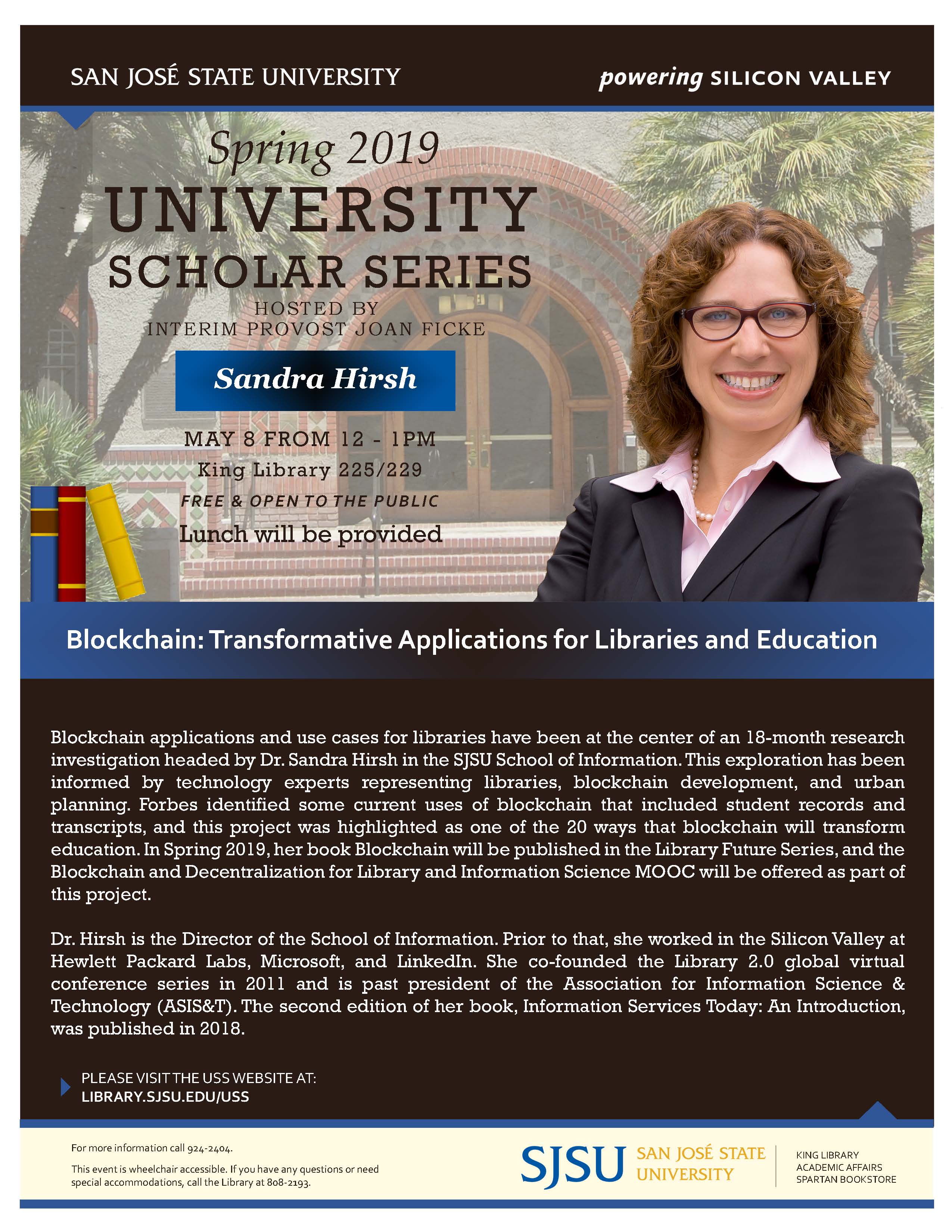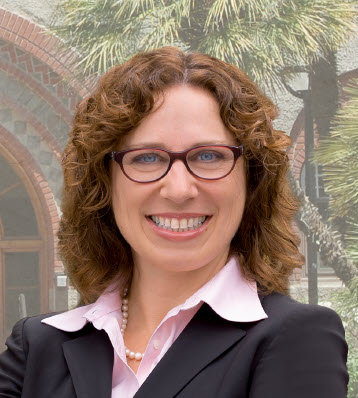
Conference Blockchain, Open Education & Digital Citizenship, 28-29 May 2019 (pre-conference le 27 mai), Université de Lille (France)
On 28-29 May 2019 (with pre-conference on 27th), this international conference taking place at university of Lille (France) will provide participants with a unique opportunity to have an independent, informed overview of the application of blockchain technologies in the global education context. The plenary sessions will include use case studies from the European Commission, governments institutions, researchers and private stakeholders. The call for papers in seven over-riding themes is open. Registration is open until 26th April 2019. http://blockchaineducationfrance.fr/
|
The University of Lille, for the Directorate of Digitalisation for Education (French Ministry of National Education & Youth) and the Commonwealth Centre for Connected Learning (Malta), organise the second edition of the international conference: |
||
|
Blockchain, Open Education & Digital Citizenship This conference aims to provide participants with an independent, informed overview of the application of blockchain technologies, globally and in particular in education contexts. The conference will engage with ongoing concerns relating to blockchain technology such as sustainability, energy costs, open standards, and the various merits of public vs private or consortium blockchains. This conference aims to facilitate a better understanding of how educational innovation may improve lifelong learning pathways that integrate personal interest, peer relationships, and achievement in academic, civic, or career-relevant areas. With regard to open education, we focus in particular on open, transparent educational resources. Our call for papers aims to discover new initiatives in this area. In addition, the conference provides an opportunity for researchers in informatics, law and politics (governance) to disseminate their work and initial research findings in their field. Information and registration on the website of the event: http://blockchaineducationfrance.fr/ |
MOOC: Blockchain and Decentralization for the Information Industries
Course Content
The content of this MOOC is publicly available, except for discussions and quizzes. Anyone can view the course (in read-only format) without logging in to the Canvas Network.
Course Description
The Blockchain and Decentralization for the Information Industries MOOC will introduce the technologies behind Blockchain, outline guidelines for how and where Blockchain might be used within the information professions, discuss other related emerging systems, and generally make participants more capable of critically evaluating claims and services regarding Blockchain.
Schedule
The Blockchain MOOC occurred from Monday, March 11, 2019 to Sunday, April 21, 2019. The six-week course covered topics, including:
- Overview and history of Blockchain
- Standards, legalities, security
- Related Blockchain-like systems, decentralization
- Limits of the technology, ethical concerns, new types of proofs
- Use cases in public libraries, academic libraries, museums, archives
- Future directions
Blockchain Project Summary
Blockchain: The Path Forward for Libraries and the Information Professions
It is clear from the expanding literature that blockchain technology is a trend on the brink of revolutionizing the public and private sectors. There have been conferences, books, white papers, start-ups, and numerous back-channel discussions on ways blockchain technology can be applied to various organizational procedures and processes, but librarians have not been evidenced in these mainstream discussions. However, the use of blockchain technology in libraries is on the radar of many information professionals who are curious about or understand its disruptive potential.
Drs. Sandy Hirsh and Sue Alman of the San José State University School of Information, were awarded a grant from the Institute of Museum and Library Services to investigate blockchain technology in order to gain a better understanding of the ways blockchain applications could be implemented in libraries to better serve their communities. Technology experts representing libraries, blockchain development and urban planning were selected to address the issues surrounding blockchain applications within the information professions. These experts participated in each of the three projects that were developed with the IMLS grant funding:
- A project website and blog includes information and resources about blockchain technology and cites potential library applications. (https://ischoolblogs.sjsu.edu/blockchains/)
- The Library 2.018 mini-conference, “Blockchain Applied: Impact on the Information Profession,” featured keynote addresses and use-case sessions delivered by noted experts. http://www.library20.com/page/blockchain
- Blockchain National Forum – Convened 26 technical experts to discuss ways that blockchain technology can enhance library services and processes. https://ischoolblogs.sjsu.edu/blockchains/national-forum/
The presentations and discussions focused on the need for the profession to consider many issues that impact blockchain implementation in libraries. The complex issues of developing standards, understanding the legal ramifications, and establishing security protocols are detailed on the SJSU iSchool blockchain website and will be expanded in the forthcoming book of the ALA Library Futures Series, Blockchain, available in spring 2019.
However, librarians must engage in serious dialogs within our profession and with other blockchain developers and users to make sound decisions for the future. One of the first steps is to ensure that our current professionals and students have an accurate understanding of how blockchain works and the benefits that can be derived from its use in libraries.
Several blockchain applications or use cases that have the most practical and immediate impact are: ILL for fee management using the voucher model with crypto currency for micro payments across libraries; credentialing/badges for self-sovereign identity; community-based collections that extend library-like services for sharing objects, tools, expertise; and securing ways to track digital provenance.
The experts’ executive summaries provide a rich context for possible applications of blockchain technologies in libraries. Two of LITA President Bohyun Kim’s suggestions encouraged the profession to consider the kind of data and records that need to be stored and preserved exactly the way they were created and the implementation costs. John Bracken, DPLA executive director, suggested that the profession explore the ways that blockchain could be used to archive social media and the documentation and evaluation of news.
Path Forward
The discussions led the experts to agree on several major recommendations for moving forward:
- Educate the public and information professionals about blockchain technologies;
- Create opportunities for people to experiment with blockchain;
- Work with other interested parties to develop a library pilot project for one or more blockchain use cases.
Currently we are identifying 2-3 micro-projects for testing in order to move from awareness to activity or proof-of-concept to full implementation. Three of the micro-projects identified are:
- Ill and voucher system
- Universal Library Card
- Credentialing
Ideas for other micro-projects and suggestions for potential funders should be sent to: susan.alman@sjsu.edu
You can take the conversation on the road or prepare for the blockchain revolution with some professional development at any number of tech and blockchain-themed conferences happening throughout the U.S. and worldwide. The following are just a few past and future conferences to be aware of for those who plan to delve deeper into the subject.
Upcoming Activities
- SJSU University Scholars Series:

Blockchain: Transformative Applications for Libraries and Education
Sandra Hirsh, School of Information
Wednesday, May 8, 2019, noon-1pm
King Library 225/229 (2nd floor)
Event Flier [Opens in new window]
- “Blockchain: Transforming the Technological Future,” ALA Annual Conference, LITA, June 22, 2019.
Project Conferences
Library 2.018 – Recordings of the Blockchain Applied: Impact on the Information Profession June 7, 2018 available on YouTube.
See Blockchain National Forum Project for details.
Link to Blockchain National Forum Recording
Past Conferences
Beyond Bitcoin: What is Blockchain and What Will It Mean for Law Librarians? November 2017, Online
“Game Changer” The Future of Blockchain Digital Money — November 2017, Washington, DC
Internet of Things Tech Expo and Blockchain Expo — November 2017, Santa Clara
Blockchain Expo – November 2017, Santa Clara
The Blockchain & Libraries – December 7
World Blockchain Forum — September 2017, London
The Business of Blockchain Summit – October 10, 2017, Atlanta
IoT Security Summit — October 2017, New York City